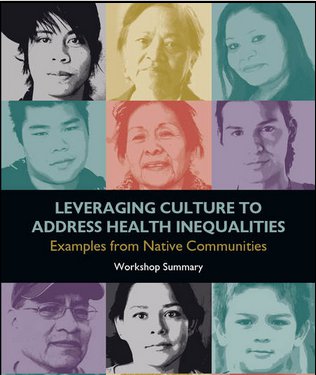
Leveraging Culture to Address Health Inequalities: Examples from Native Communities is the summary of a workshop convened in November 2012 by the Roundtable on the Promotion of Health Equity and the Elimination of Health Disparities of the Institute of Medicine. The workshop brought together more than 100 health care providers, policy makers, program administrators, researchers, and Native advocates to discuss the sizable health inequities affecting Native American, Alaska Native, First Nation, and Pacific Islander populations and the potential role of culture in helping to reduce those inequities. This report summarizes the presentations and discussion of the workshop and includes case studies that examine programs aimed at diabetes prevention and management and cancer prevention and treatment programs.
In Native American tradition, the medicine wheel encompasses four different components of health: physical, emotional, mental, and spiritual. Health and well-being require balance within and among all four components. Thus, whether someone remains healthy depends as much on what happens around that person as on what happens within. Leveraging Culture to Address Health Inequalities addresses the broad role of culture in contributing to and ameliorating health inequities.
Population of focus: Native American
Links to resource:
Date: 2013
Organization: Institute of Medicine
